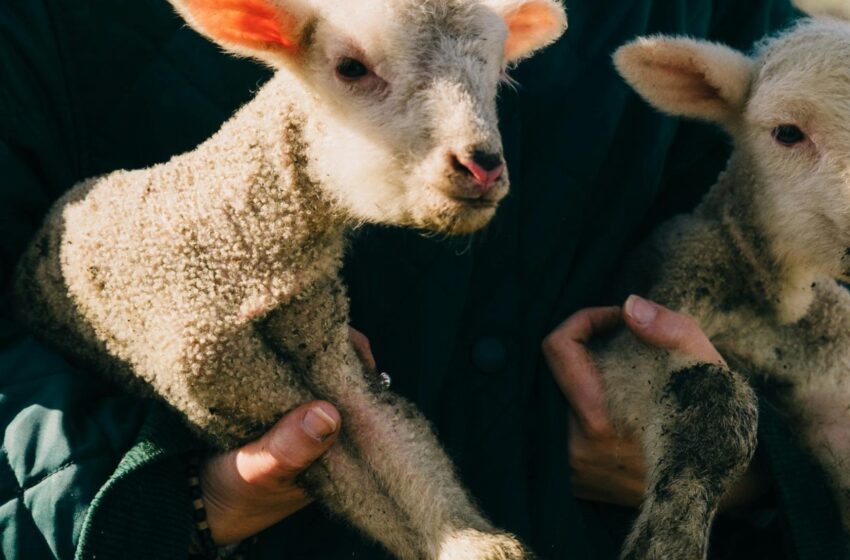
This Is What My First Udhiyah Was Really Like
When I was seven, I watched my father slaughter our udhiyah (Qurbani) for Eid-Al-Adha for the first time in my life. In January 2006, my mother dressed up my sisters and me in matching Eid outfits and sent us off, going into the kitchen herself to help prepare breakfast and lunch. My two younger sisters and I followed our cousins up to the rooftop balcony of our grandparents’ house. Their balcony overlooked the masjid and, in the corner, standing with several other men and a few bleating goats, was my father.
Eid Al-Adha is the second Eid that occurs in the Islamic year. This Eid comes with the holy pilgrimage, Hajj, which happens once every year in the last month of the Islamic year; Dhul-Hijjah. On the third day of Hajj, Eid Al-Adha takes place, and Muslims all over the world sacrifice an animal (sheep, goat, lamb, etc.) for the sake of Allah (SWT.)
In a hadith, reported by Zayd ibn Arqam (RA,) the Sahabah once asked the Prophet Muhammad (PBUH,) “Oh Messenger of Allah! What is Udhiyah?” He replied, “It is the best sunnah of your father Ibrahim (AS.)” The Sahabahs asked again, “What benefit do we get from it?” The Prophet (PBUH) answered, “A reward for every hair (of the sacrificed animal).” “And what reward is there for animals with wool, Oh Messenger of Allah?” they asked. “A reward,” he said, “for every fiber of the wool” 1.
At seven years of age, the thought of seeing a goat being sacrificed … was intriguing and gross at the same time.
My family and I had traveled from Melbourne to Kenya (where my parents were born and raised) to visit my grandparents for a few months. On the day of Eid, my father insisted on doing the udhiyah himself because we didn’t get the chance to do it ourselves too often back home in Australia and to gain that extra reward for every hair sacrificed on the animal. My father told us to go up to the balcony so we could watch him slaughter the sacrificial goats he and my uncle had prepared.
At seven years of age, the thought of seeing a goat being sacrificed for the sake of Allah (SWT) was intriguing and gross at the same time. My sisters and I eagerly watched, cringing and squealing at the initial parts and then watching as our father got the job done. At one point, he looked up and called us down, so we rushed to him, tiptoeing over the bloody water and clinging to him as he explained the process of slaughtering the animal according to the laws of Islam.
The story of Ibrahim (AS) and his son Ismail (AS) was one my parents reiterated quite often, mainly to show us the true obedience a son had for his father and towards the command of Allah (SWT,) but also to get us interested in our religion. As my sisters and I watched the expert men cut the goat into pieces and bag them, I was mesmerized by the process.
The act of sacrificing an animal represented the act of giving up something you love for the sake of Allah.
As a young child, that didn’t make much sense to me, but as I’ve grown and experienced Eid Al-Adha in dozens of different circumstances and phases of my life, I’ve come to realize the meaning behind that act. The act of sacrificing an animal represented the act of giving up something you love for the sake of Allah (SWT,) the same way Prophet Ibrahim (AS) was willing to sacrifice his son for Allah (SWT.)
Once our udhiyah had been divided into little bags and we were all back home, we began the task of distribution. We kept a third of the meat for us to eat, then packed a third of the meat for relatives, mainly my family on my mother’s side, and the remaining third for the poor. My uncle drove us all over town, helping my parents deliver meat to my grandmother (mum’s mum), all her siblings, and any other relatives we needed to visit. My sisters and I then handed bags of meat to the poor, which was an experience that I will never forget.
When we came back to Australia and as time went on, we’ve only been able to physically do the udhiyah one other time, in 2022. But each Eid Al-Adha has yet to live up to my first-ever experience of seeing an udhiyah in 2006. With the heartbreaking situation around the world, and our brothers and sisters suffering in Palestine, Sudan, Congo, and so many more countries, it’s hard to be able to enjoy the happiness that usually comes with Eid Al-Adha. But Allah (SWT) knows best. With all the sacrifices being made by Muslims all over the world, things may change for the better very, very soon. InshaAllah.



